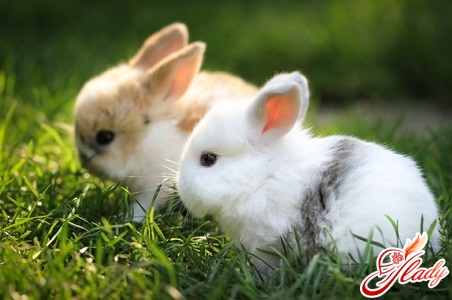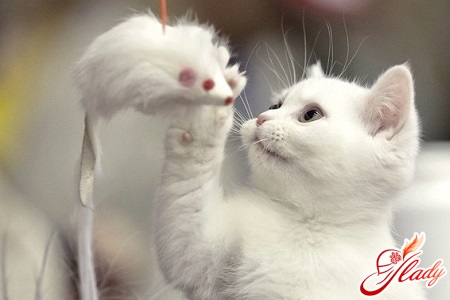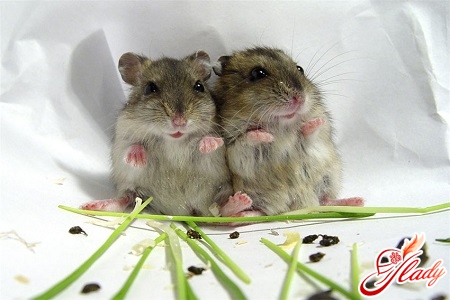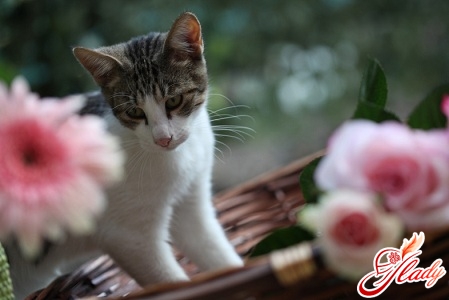 The animal world never ceases to amaze us again and againagain. And this applies not only to new species or rare representatives of the fauna. Even pets that are completely familiar to us can become an unexpected discovery. It would seem that there is something so mysterious about dogs? However, even among these four-legged pets of ours there are simply unique dogs. For example, representatives of the Basenji breed. What is the uniqueness and unusualness of these dogs? What is so special about this breed?
The animal world never ceases to amaze us again and againagain. And this applies not only to new species or rare representatives of the fauna. Even pets that are completely familiar to us can become an unexpected discovery. It would seem that there is something so mysterious about dogs? However, even among these four-legged pets of ours there are simply unique dogs. For example, representatives of the Basenji breed. What is the uniqueness and unusualness of these dogs? What is so special about this breed?
Where did the Basenji come from?
For Russia, this breed is still very rare.It first appeared in our country in the late nineties of the last century. And the history of the Basenji began in Africa more than five thousand years ago. The tribes of natives living in the jungles of Central Africa kept small and graceful dogs as indispensable companions on the hunt. It is also known that Basenjis were an integral attribute of local sorcerers, shamans and healers. These dogs were brought to Europe in 1895. But, unfortunately, the first pair of new African dogs could not adapt to the conditions of civilization, and this experience of breeding a new breed was unsuccessful. The second attempt was made ten years later, when representatives of this breed were settled in the Berlin Zoo, where the first European offspring of the Basenji was born. In 1937, the breed was presented at the Crufts Exhibition in the USA as a "jungle dog" or "Congo terrier". Since then, the breed has rapidly gained popularity in the world of dog lovers, which is explained not only by its exotic origin, but also by its very interesting features.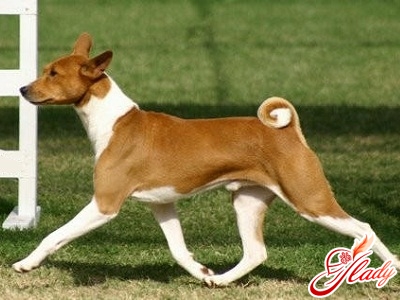
Unique features of the breed
Let's start with the fact that these dogs don't bark!Yes, yes, they are absolutely devoid of this characteristic feature of all domestic dogs. You can hear any sounds from the Basenji: growling, snorting, muttering, whining, giggling, but not barking. The unusual voice of these dogs is very melodic and sometimes resembles a kind of Tyrolean singing. This is, perhaps, their main, but not the only "highlight". Unlike all other dogs, whose females are ready to reproduce offspring twice a year, Basenji ladies are capable of fertilization only once a year. This usually happens in late autumn, and in winter a small number of offspring appears, which has an innate stable immunity to many diseases. Another feature of the Basenji is the absence of a typical dog smell. The silky short hair of these dogs does not smell like "dog" at all even when wet. In addition, their hair is absolutely safe for people suffering from allergies. These dogs are also unusually neat and clean. They will never wipe their food-stained muzzles on furniture, carpet or their owner's clothes (which many pets do with pleasure). These dogs tidy themselves up by washing and licking themselves like cats. Like cats, they also love to curl up and lie near their owner's head or lap. But the maintenance of Basenjis is no different from the maintenance of other dogs. For example, the owner of this dog should not have to ask what to feed a Basenji. The diet is based on meat, as well as vegetables, cereals and fermented milk products. In general, Basenjis are simply ideal companion dogs, unpretentious in care. They are docile and assiduous, but at the same time they love to frolic. They are wonderful and attentive "interlocutors". They have a natural charm and an innate sense of self-worth. They know how to emphasize the superiority of the owner without excessive servility. They are tactful and moderately cunning.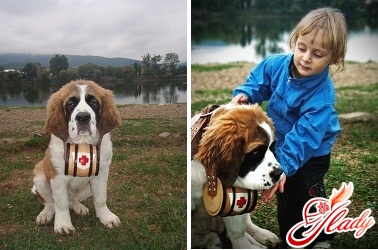
Mythology of origin
Basenji:The origin of the breed is connected with mythology and mystical stories. The natives firmly believed that these dogs were able to protect against evil spirits, restore vital energy and extinguish negative energy. The belief in their magical power is also confirmed by the burial places of Egyptian pharaohs, where embalmed mummies of Basenjis rest. One of the ancient African legends says that these dogs were once able to speak human language. But one of them learned an important secret of its owner and, afraid to let it slip, fell silent forever. This is how these mysterious African barkless dogs appeared. We recommend reading:




